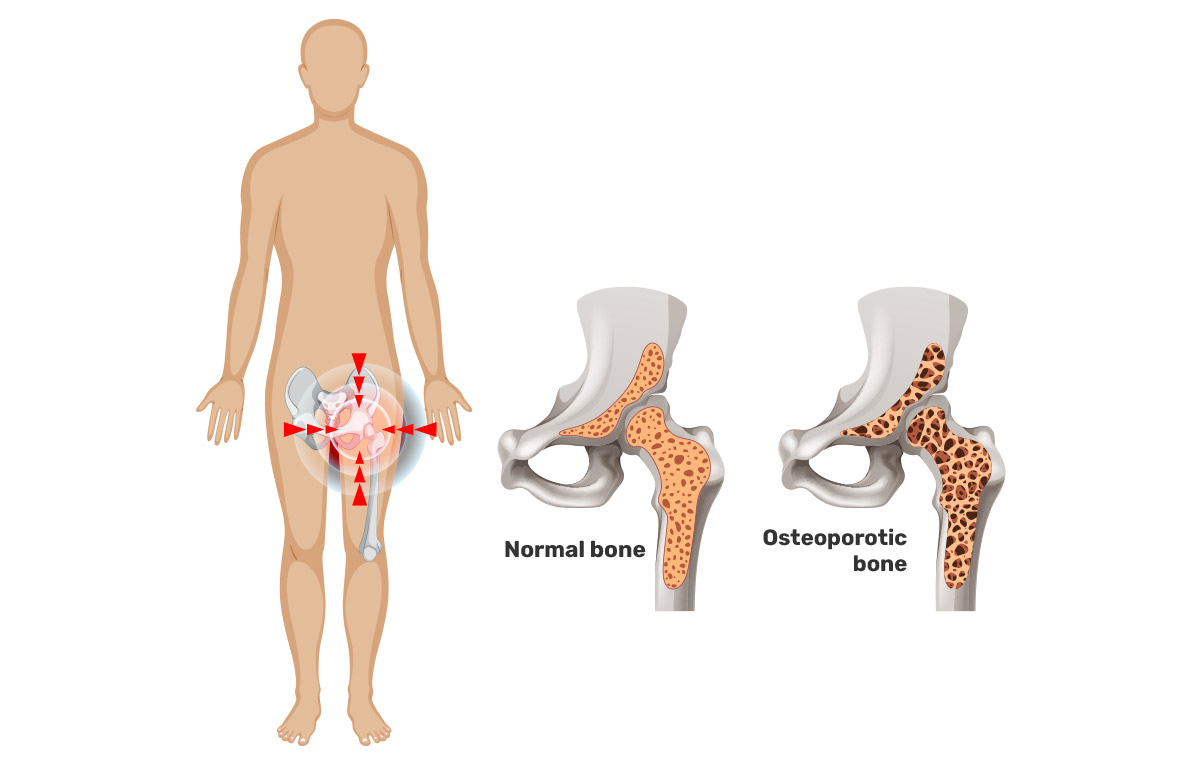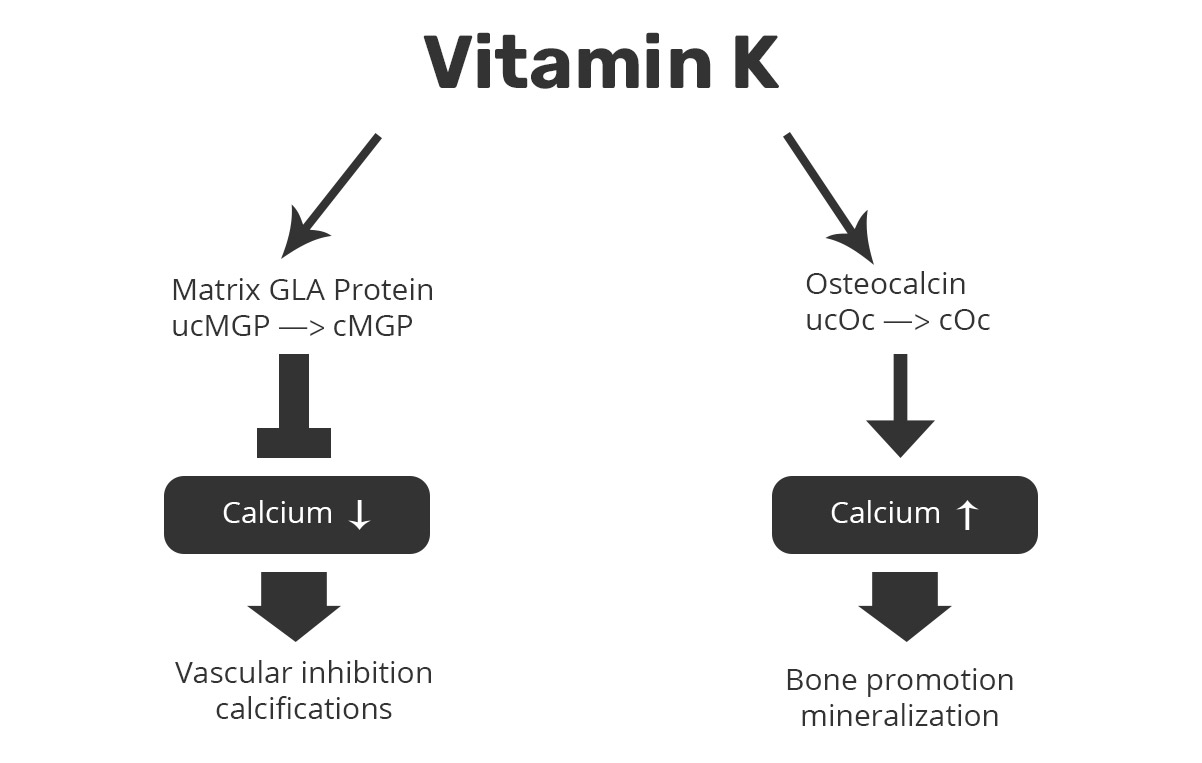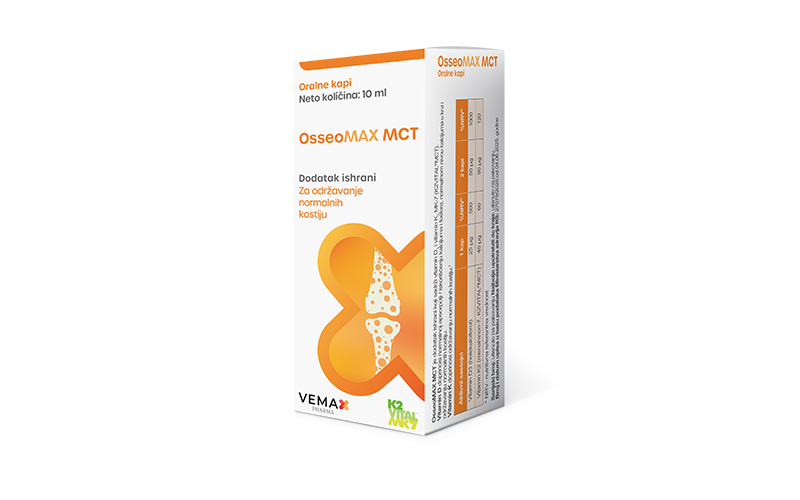OsseoMAX MCT® drops
Choose the optimal combination for bone health.
OsseoMAX MCT® drops
OsseoMAX MCT® drops is a unique combination containing vitamin D3 and vitamin K2, in the form of drops, to improve bone health.
Composition
Active ingredients |
1 drop |
2 drops |
Vitamin D3 |
1000 IU |
2000 IU |
Vitamin K2 |
45 µg |
90 µg |
Indications – to whom we recommend:
- Patients with reduced bone density (osteopenia and osteoporosis)
- Postmenopausal women
- Vitamin D, K2 and calcium deficiency
- After a fracture, as support for accelerated healing
- Support the immune system
- For patients with osteoporosis, as co-therapy in addition to basic treatment
- Additional supplementation with calcium and vitamin D is recommended along with bisphosphonates
- Additional calcium and vitamin D supplementation is recommended with Denosumab
Favorable safety profile.
Efficacy confirmed by clinical studies.
Method of use (dosage):
Adults: 1-2 drops once a day. The dosing pump enables easy and precise dosing.
Fast resorption. Possibility of individual dosing.
Packaging:
10 ml
 MICROENCAPSULATED VITAMIN K2 ALL-TRANS MK-7 → The only patented vitamin K2 for combined use with minerals, of high purity, absorption, stability and efficiency.
MICROENCAPSULATED VITAMIN K2 ALL-TRANS MK-7 → The only patented vitamin K2 for combined use with minerals, of high purity, absorption, stability and efficiency.
Double encapsulation allows isolation and protection of K2 MK-7 from direct contact with alkaline salts, such as calcium and magnesium.
In combination with calcium, K2Vital®Delta shows superior stability, compared to unprotected K2 MK-7.
 MCT OIL (medium chain triglycerides) are esters of fatty acids, contain 6 to 12 chains of C atoms → unique metabolism and energy production.
MCT OIL (medium chain triglycerides) are esters of fatty acids, contain 6 to 12 chains of C atoms → unique metabolism and energy production.
They are quickly resorbed and transported to the liver. They are not converted into adipose tissue, but are used as an immediate source of energy in the mitochondria.
Carnitine – independent transport into mitochondria enables faster β-oxidation compared to long-chain fatty acids.
Their use in patients with pancreatic insufficiency and disorders of digestion and absorption is particularly important.
MCT oil increases the absorption of calcium, as well as fat-soluble vitamins K2 and D3.
MCT oil, other benefits: helps burn fat and reduce body weight, helps regulate glycemic levels, helps with pancreatic insufficiency, digestive and absorption disorders, has a neuroprotective effect and improves cognitive abilities, has an antimicrobial effect.
Osteoporosis
Osteoporosis is a systemic disease of bone tissue characterized by low bone strength (mass), changes in microarchitecture and loss of bone tissue, which increases bone fragility and susceptibility to fractures.

Clinical features
- Clinically silent disease (Painless disease, “silent bone stealer”)
- Pain after fracture – vertebral body, neck of femur, forearm, other long bones
- Fractures – spontaneous and after minor trauma
- Deformities of body parts after a fracture, reduction of body height
- Nerve compression
- Bleeding due to blood vessels erosion
Vitamin D
Regulates calcium metabolism; promotes its resorption from the digestive tract and incorporation into bone and teeth – ensures normal bone mineralization.
A typical daily diet provides ∼ 3mcg per day (120IU).
Serum 25(OH)D concentration is the best indicator of vitamin D status.
Vitamin D hypovitaminosis → plasma 25 hydroxycholecalciferol <25 nmol/l (10 ng/ml).
Vitamin D recommendations depending on age:
Age group in years |
Publik Intake Recommendations for Vitamin D (Institute of Medicine, NAM) |
Publik Intake Recommendations for Vitamin D (IOF) |
0-1 |
* |
Not assessed |
1-59 |
600 IU/day |
Not assessed |
60-70 |
600 IU/day |
800 – 1000 IU/day |
71+ |
800 IU/day |
800 – 1000 IU/day |
Target 25 (OH)D level |
50 nmol/l for bone health at all ages |
75 nmol/l for all and fracture prevention |
IOF includes all individuals with osteoporosis, independent of age and states that higher intakes may be needed in some individuals to reach a serum blood level of 75 nmol/l 25 (OH)D.
Vitamin K2
Liposoluble vitamin, forms:
- K1 (phylloquinone) – role in the blood coagulation process
- K2 (menaquinone MK 4 to MK 10, of which the MK-7 form has the highest bioavailability) – roles:
1. Calcium deposition in the bones
2. Prevention of calcium deposition in arteries, soft tissues and organs
The usual daily dose of vitamin K2-7 in patients with osteoporosis is 45 mcg/day.

Vitamin K2 is an essential cofactor for the activation of the enzyme Y-carboxylase, thus participating in the carboxylation and activation of vitamin K-dependent proteins in bones (osteocalcin) and smooth muscles of the arterial wall (matrix GLA protein). Thus, vitamin K2 reduces the risk of osteoporosis and consequent fractures, as well as vascular calcificationscalcifications.
Vitamin K2-MK7 intake at a dose of 45 mcg daily reduces mortality by 50% in CV events associated with arterial calcification and 25% in overall CV mortality. (Johanna M. Geleijnse et al Dietary Intake of Menaquinone Is Associated with a Reduced Risk of Coronary Heart Disease: The Rotterdam Study J Nutr 2004; 134:3100-5. European Journal of Biotechnology and Bioscience 2014; 2 (6): 25-29.)
Write to us
Mosorska 9, 11000 Belgrade, Serbia
Vemax011 Pharma doo representative office Northern Macedonia - Dane Krapcev 13, Skopje
Vemax011 Pharma doo representative office Montenegro - Topliški put 1, Budva
Vemax011 Pharma doo representative office Bosnia and Hercegovina - Vlakovo 252, Sarajevo
+381 (0)63 103 00 08
office@vemaxpharma.rs
Vemax Pharma - your trusted regional partner on the road to health!

